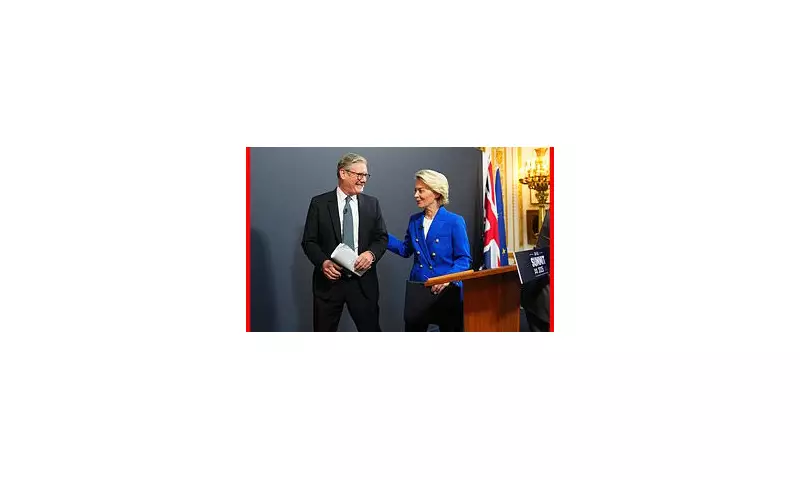
Britain's Brexit Reset: Billions on the Table for EU Access
In a significant shift in post-Brexit strategy, the UK government has indicated its readiness to pay billions of pounds to the European Union as part of Prime Minister Keir Starmer's comprehensive Brexit 'reset'. Downing Street has confirmed that Britain is prepared to meet EU financial demands in exchange for enhanced access to the single market.
The development comes as formal negotiations on implementing the Prime Minister's reset agreement are scheduled to recommence next week, marking a new chapter in UK-EU relations.
Financial Demands and Negotiation Stance
Brussels has reportedly frustrated British ministers by presenting a late-stage request for UK contributions to the EU's regional cohesion fund, which finances infrastructure projects such as roads and bridges in less developed regions across the bloc. While government sources maintain that additional payments won't be necessary to finalise existing agreements covering food standards and carbon emissions, Number 10 has suggested Sir Keir is willing to authorise payments in return for closer trading relationships with Brussels in future arrangements.
A Downing Street spokesman addressed the prospect of further UK financial contributions, stating: 'On cohesion funds, we have always said that if a proportionate contribution to a specific EU system would result in tangible benefits to the UK then that is the sensible, fair and pragmatic decision we will take.'
The scale of potential payments remains subject to intense negotiation but could eventually reach billions of pounds annually, representing a substantial financial commitment from the British taxpayer.
Security and Defence Considerations
Beyond economic cooperation, Number 10 has revealed that Sir Keir is also prepared to commit billions to the EU's Security Access for Europe Fund (SAFE). This investment would facilitate greater access for British companies to EU defence contracts, with Brussels reportedly demanding up to £6 billion in return for granting such market access.
These potential payments threaten to diminish the anticipated £9 billion benefit that ministers hope to achieve through reducing bureaucratic barriers, particularly in sectors like agricultural exports.
The Prime Minister discussed the next phase of the Brexit reset with European Commission President Ursula von der Leyen during a telephone conversation on Wednesday evening. A Number 10 spokesman confirmed that both leaders 'reaffirmed their commitment to moving forwards rapidly, as it is in the UK and the EU's interests to have a broad and constructive relationship that delivers for both sides.'
Political Reactions and Economic Implications
The government's position has drawn sharp criticism from opposition figures. Shadow Foreign Secretary Priti Patel accused Labour of 'betraying Brexit', claiming: 'It's outrageous that Labour are plotting to whack up taxes on hard-working British families and businesses to bankroll the EU.'
However, ministers remain optimistic that the reset will substantially reduce post-Brexit trade barriers, potentially boosting business activity and lowering consumer prices. EU Relations Minister Nick Thomas-Symonds described the resumption of talks as representing 'welcome progress', adding: 'We can now start formal talks on deals that will help keep food costs down and slash red tape.'
Mr Thomas-Symonds emphasised that these agreements would deliver on commitments made during the historic UK-EU Summit in May, potentially adding nearly £9 billion to the UK economy while supporting British jobs and increasing household incomes.
While France had initially pushed for UK contributions to the EU cohesion fund as part of the upcoming talks, government sources indicate this demand has now been withdrawn, with the issue deferred to future negotiations.
The current agreement framework will see reduced trade barriers in agriculture in return for the UK aligning permanently with EU regulations. In exchange, Britain must accept some form of EU mobility scheme and faces pressure to abandon post-Brexit innovations, including gene editing development and the ban on live animal exports.
Mr Thomas-Symonds has confirmed the deal should be operational by 2027, with ministers considering whether to pursue further alignment in additional sectors such as chemicals in subsequent negotiations.





